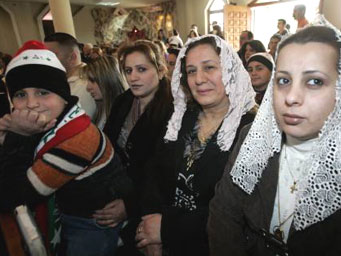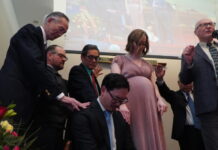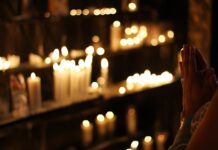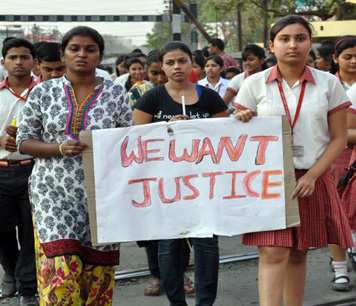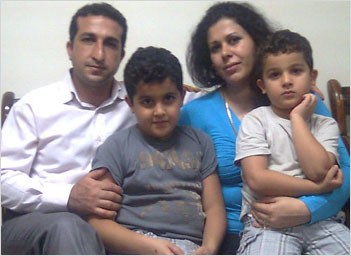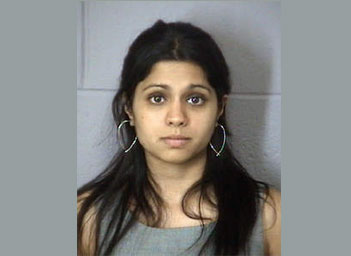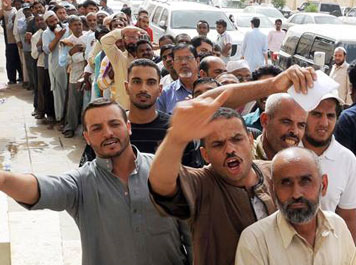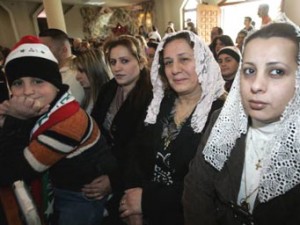 LITTLE Nuria and her sisters love singing songs about Jesus. But when people Nuria doesn’t know ask her if she’s a Christian, she doesn’t know what to answer; instead, she looks questioningly at her mother or father.
LITTLE Nuria and her sisters love singing songs about Jesus. But when people Nuria doesn’t know ask her if she’s a Christian, she doesn’t know what to answer; instead, she looks questioningly at her mother or father.
She is 6 years old and goes to a Christian school in Kirkuk, Iraq. When her aunts and uncles visit, her mother purges the house of anything that points to their Christian faith: the cross on the wall, the Bible, her Christian storybooks. Nuria knows her relatives are Muslims, but sometimes she forgets and she or one of her sisters starts to hum a Christian tune.
The relatives don’t like this and tell the parents to teach them Muslim songs.
“When our relatives come from Baghdad, we need to move everything that is Christian,” Nuria’s mother said. “In short, we are living two lives. It is very hard on children. We are adults, and it is hard for us to live double lives, but for children it is worse. Even their personality will be affected.”
Nuria and her family, whose names must be withheld for their safety, are Iraqi Arabs who converted from Islam to Christianity. Whereas Assyrian Iraqis are accepted as Christians by ethnic identity, Iraqi Muslims believe Arabs have no business becoming Christians; it is not possible, according to society and the constitution.
Iraq’s Constitution says each individual has freedom of thought, conscience and belief, but there is no article on changing one’s religion. This makes it legally impossible to apply freedom of belief in the cases of converts, said a Christian Iraqi lawyer on the condition of anonymity.
 Nuria’s parents, like many converts in Iraq, struggle to raise their children as Christians in a society that will only accept them as Muslims. If the children say they believe in Jesus, they face beatings and scorn from their teachers. Because their identification cards say they are Muslims, they cannot enroll in Christian schools, and they must take Islamic religion classes. Likewise, because of their identity cards they later would only be able to marry another Muslim under Islamic rites.
Nuria’s parents, like many converts in Iraq, struggle to raise their children as Christians in a society that will only accept them as Muslims. If the children say they believe in Jesus, they face beatings and scorn from their teachers. Because their identification cards say they are Muslims, they cannot enroll in Christian schools, and they must take Islamic religion classes. Likewise, because of their identity cards they later would only be able to marry another Muslim under Islamic rites.
In an Iraq torn by national and religious divides, there is no safe haven for Nuria’s family or other Arab families who convert from Islam. Generally big cities are good places for Christians like them to hide, away from extended families who would detect strange behavior like visits to church on Sundays. Even then, however, Muslim neighbors or employers who discover they are converts can make their lives unbearable.
Nuria’s parents became Christians seven years ago. Life was easier for her parents before she and her sisters went to school. Her dad, a carpenter, used to speak openly about his faith. These days he is not so brave; he has had to change jobs one too many times because his employers discovered his faith.
“The first years of my faith, I brought so many people to church, because I was motivated, so excited,” he said.
These days his landlord, in a mixed Kirkuk neighborhood where mostly Kurds and Assyrians live, has also figured out he is a Christian. The Muslim landlord is offering him either a rent raise or eviction; there’s also the option of “going into business” with the landlord by sharing his carpentry work profits with him. Such extortion is all too common.
This is the fifth house they have lived in since 2003, when the family came to faith. Source: Baptist Press
Get the latest news from India | Read latest Christian news headlines



